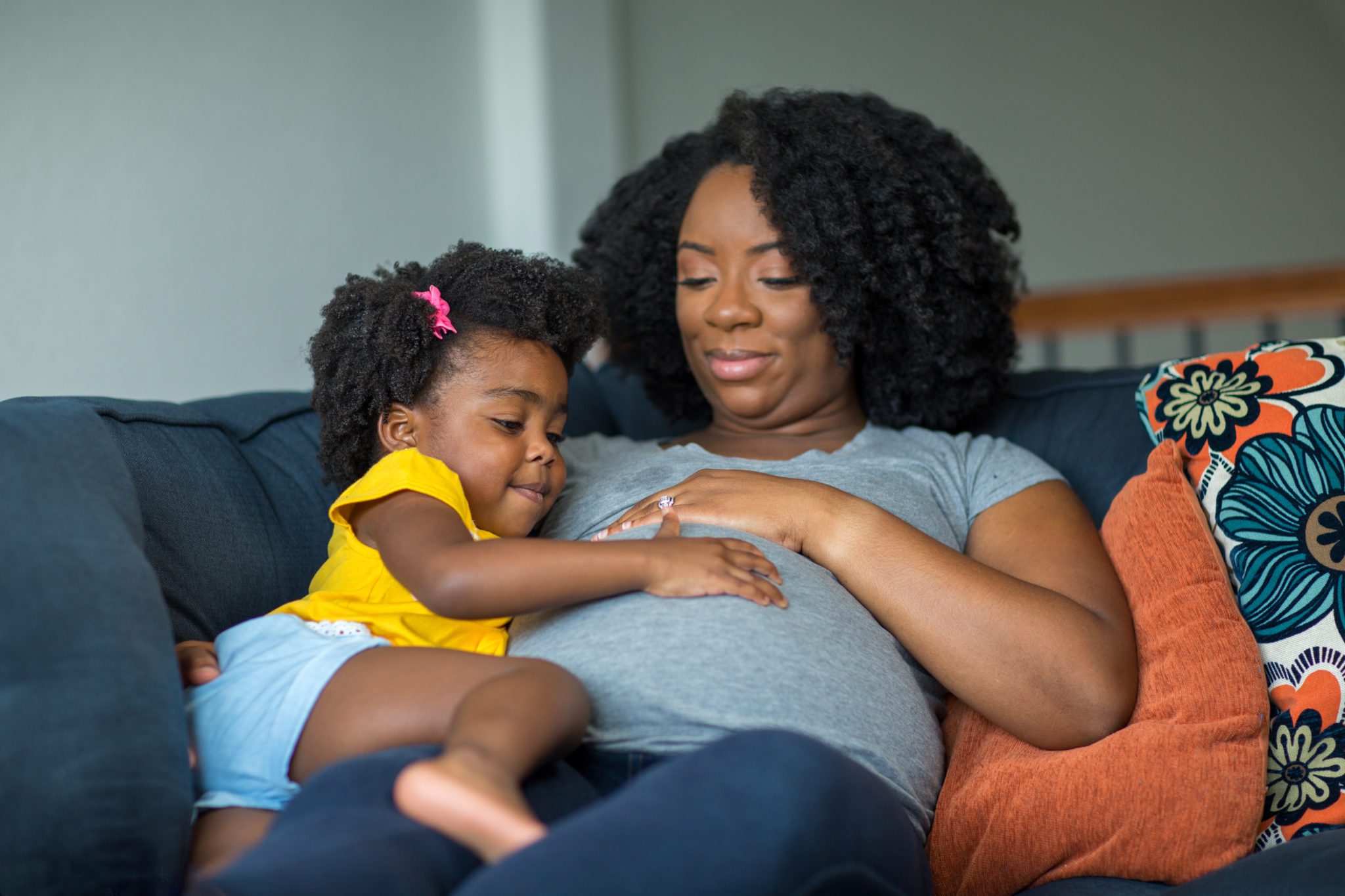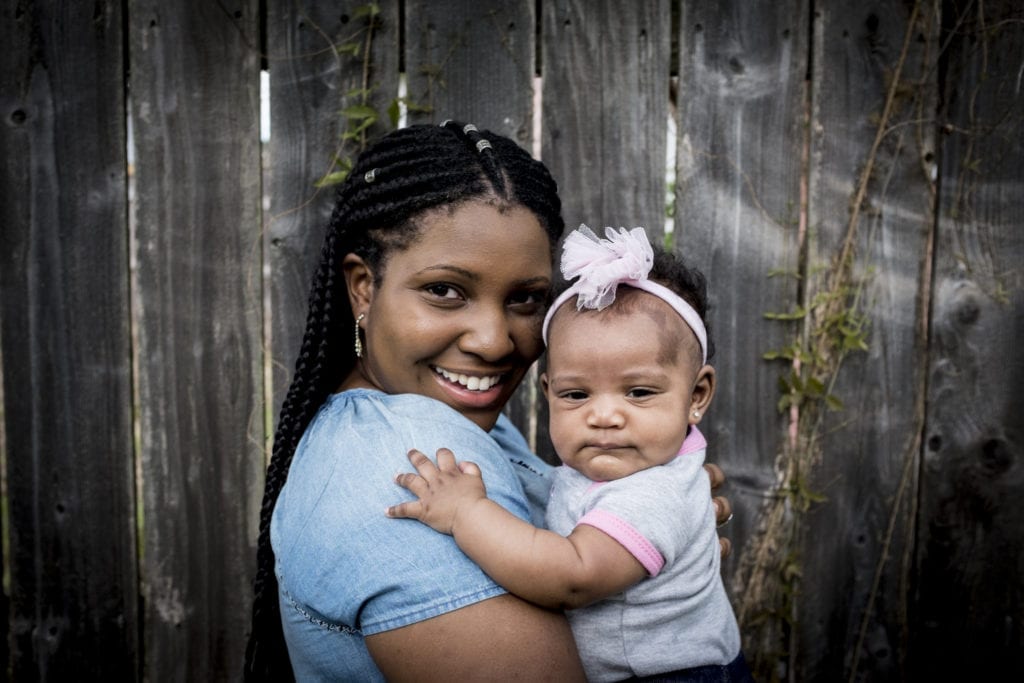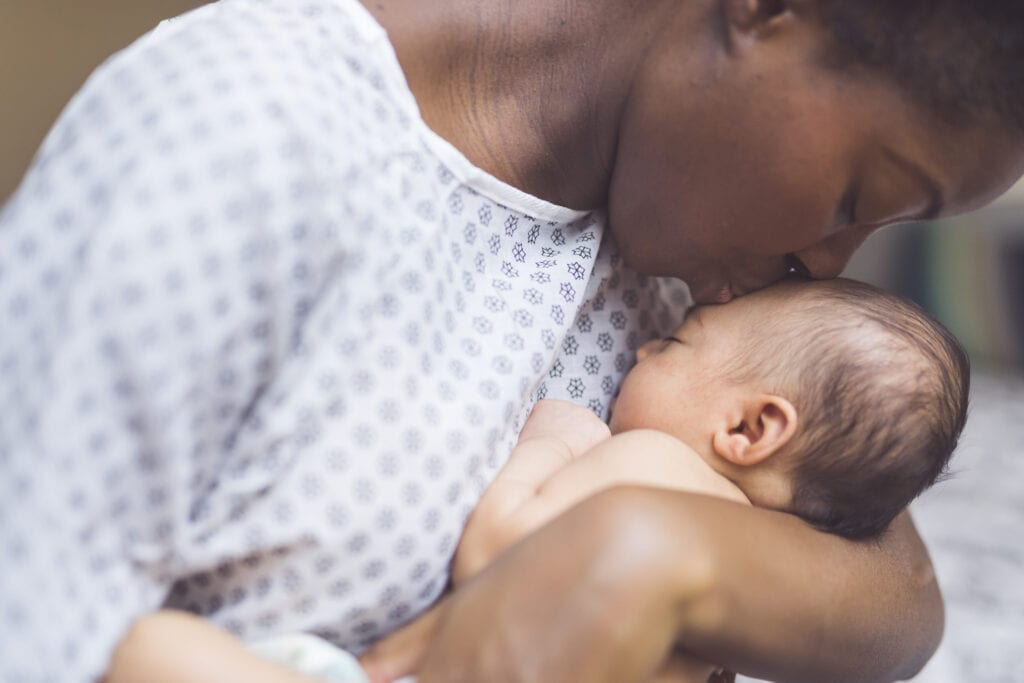“Let’s Talk Repro” Series: Breana Lipscomb, Senior Advisor for Maternal Health & Rights
“Movements for change are most impactful when the communities that are most affected by human rights violations are leading on that change.”
“Let’s Talk Repro” is a new series highlighting Center professionals and their work. This is the fourth article in the series.
Name: Breana Lipscomb
Title: Senior Advisor, Maternal Health & Rights
Pronouns: She/her
Core Issue: Maternal Health
Region: United States
Years at the Center: 6
Highlights:
- Recipient of the inaugural Kira Johnson Advocate of the Year by March for Moms (2020) for her work on Black maternal health.
- Spearheaded successful effort to extend post-partum Medicaid coverage in Georgia from 60 days to six months (2020) and then to 12 months (2022).

Breana Lipscomb is the Senior Advisor for Maternal Health & Rights on the U.S. Human Rights team of the Center for Reproductive Rights. In this role, she develops and implements advocacy strategies to support Black maternal health, particularly in the U.S. South, by mobilizing a broad base of stakeholders to advance state and federal level policies.
Breana has over 15 years of public health experience and has worked in Tennessee, Guatemala, and the state Departments of Health in both Iowa and South Carolina. She is the Co-chair of the Board of Directors for the Black Mamas Matter Alliance and a member of the Black Maternal Health Federal Policy Collective. Breana received her Master of Public Health and Bachelor of Science in Biology from the University of Alabama at Birmingham.
Listen to this audio clip and read below as Breana discusses her work at the Center, recent wins that have inspired her, her goals for the future, and more.
Q. What brought you to the Center for Reproductive Rights?
A. I’ve worked in maternal health my entire career. Prior to joining the Center, I worked in organizations and state government agencies that took a very different approach to addressing maternal health. Theirs was, ‘How can we make people be healthier?’—instead of looking at the systemic changes required to allow people to be their healthiest selves. I got to a point in my career where I was tired of being quiet about how Black women were disproportionately impacted by maternal and infant mortality, and I was excited that the Center was working on these issues from a policy perspective. So, joining the Center was an opportunity to bring my knowledge of public health systems together with a human rights framework—and to talk about the impact that racism was having on people’s ability to reach their optimal level of health.
A Maternal Health Crisis in the U.S.
- In 2021, U.S. maternal mortality rates jumped by 38.2%.
- The rate for Black women was 2.6 times higher than the rate for non-Hispanic white women.
Q. What are you focused on in your work right now?
A. The Center’s Maternal Health and Rights Initiative focuses on three main priorities: ensuring high quality data collection, fighting for access to safe and respectful comprehensive maternal healthcare, and addressing racism within and beyond the healthcare system.
We’re also exploring how we can use legal levers to expand access to midwifery care. Midwives have been the birth workforce in this country for centuries, but over the past hundred years there was a concerted effort by white male physicians to drive Black and Indigenous midwives out of the birth workforce, and childbirth became medicalized. Because of that, Black and Indigenous midwives are underrepresented, and that has grave impacts for Black and Indigenous women looking for maternity care providers that understand their cultural practices, that live in their communities. Particularly when we know that Black women and other women of color and birthing people of color disproportionately experience disrespect, abuse, and neglect in hospital settings, it’s important for them to have options for where and with whom they birth. So one of our key policy priorities right now is to look at how we can address this patchwork of laws that exists across the country that vary so greatly from state to state and that dictate who can call themselves a midwife, who can get paid as a midwife, and who’s criminalized for practicing in this way. We’re working on this through legislative action, with partners and midwives that want to provide care in their communities.
We are also highly prioritizing initiatives to improve access to community-based doulas. We need to invest in doulas in a way that is equitable and that allows them to earn a living wage for this valuable work. We are working with several of our partners to make sure that we are promoting policies that expand access to doulas, particularly for those people that are at most vulnerable when it comes to maternal mortality and morbidity.
Another key part of what we are doing right now is working with partners to address racism in the health care system. This includes supporting legislation that promotes anti-racism training for maternity care providers in hospital settings as well as legislation to remove discriminatory policies.
We are also engaging with human rights monitoring mechanisms, including the UN Committee on the Elimination of Racial Discrimination (CERD), which issued a report urging the U.S. to ensure abortion access and culturally respectful maternal health care. It’s important for these human rights bodies to realize how far backwards the U.S. is moving while the rest of the world is moving ahead in liberalizing its abortion and reproductive health care policies.
“Midwives have been the birth workforce in this country for centuries, but over the past hundred years there was a concerted effort by white male physicians to drive Black and Indigenous midwives out of the birth workforce.”
Q. Can you discuss the importance of centering the experiences and leadership of people directly impacted by poor maternal health outcomes in the movement for change?
A. We use a human rights framework with our Maternal Health and Rights Initiative, and one of the core principles of human rights is centering impacted communities. We believe that movements for change are most impactful when the communities that are most affected by violations of human rights are leading on that change. At the same time, I think it’s important to recognize that it’s not up to that community alone to solve a system or fix a system that they did not break, or that was never intended to work in their favor. It’s important for us to take the lead from our partners that are representing communities or living in communities that are affected by maternal mortality and morbidity. And so, we work to advance government policies that support the work those communities are already doing and break down the policies that are hindering it.
Many of our partners are community practitioners: they’re providing doula care, they’re midwives, they’re grassroots advocates. Part of our role is to equip them with the tools and resources they need to be effective in their advocacy.
Read more.
U.S. Maternal Health & Rights Initiative
This Center program focuses on improving maternal health equity and outcomes in the United States.
Q. What is your greatest achievement or win in doing this work?
A. We’ve been working really diligently to make sure that birthing people have access to the lifesaving health care they need during pregnancy and in the postpartum period. One way the Center has done this is by advocating for postpartum Medicaid extension, which requires states to change their policies to assure that all eligible individuals have Medicaid coverage up to one year after the pregnancy ends. This postpartum Medicaid extension effort started with the work we did in Georgia back in 2018; we spent time educating legislators on the importance of the policy, we were finally able to get the first bill introduced in 2019, and in 2020, we got six months of coverage passed in Georgia. As advocates, we knew that that wasn’t enough, but it was certainly more than the 60 days of coverage that birthing people had before. What’s really exciting, though, is that while we were working on it, other states were asking, ‘Hey, what did your bill look like? How did you get this done?’, and we were able to share some of our resources and lessons learned. Suddenly it seemed like so many of the states around us were getting 12 months of coverage. So, we went back to the legislature and said, ‘Hey, we have to get to 12 months because we started this and now everyone has quickly surpassed us!” It took another two years, but we finally got to 12 months of coverage in 2022.
It was an idea and an effort that started in one place, but it’s grown into so much more now. More than half of the country has the 12-month policy in place, and there’s congressional support for it. But our next phase is to make sure that the federal government makes it mandatory for all states to have 12 months of coverage postpartum—and I believe that we can get that done.
“It’s important to recognize that it’s not up to [any] community alone to solve a system or fix a system that they did not break, or that was never intended to work in their favor.”
Q. Looking forward, what are some of the most pressing issues facing maternal health in the U.S.? How will the maternal health and rights initiatives continue to address them?
A. In addition to improving access to Black and Indigenous midwives, expanding the options for where a person can give birth is also crucial, so we’re looking at how we can support the establishment of birthing centers.
The other issue that is pressing right now is the impact of the Dobbs decision that overturned the constitutional right to abortion. Abortion bans and restrictions are undermining access to appropriate pregnancy care, and that includes access to early prenatal care, miscarriage management, and also in situations where dangerous pregnancy complications arise. Even though some state bans have ‘life and health’ exceptions, the practical experiences of pregnant people with dangerous emergent conditions is that doctors are opting not to provide the care, for fear that they will lose their licenses, that they will face civil or even criminal penalties for providing that abortion care. That’s deeply problematic in a country where our maternal mortality rate is the highest among all wealthy countries.
We’re trying to pass laws and policies that right these wrongs. We’re listening to partners to hear what their real-life experiences are like in real time so that we can amplify those stories to lawmakers. We’re continuing to engage and leverage United Nations human rights mechanisms so that they can also bring attention to the state of conditions here in the U.S., and we’re always prepared to take action both through the legislature or through litigation.
“Abortion bans and restrictions are undermining access to appropriate pregnancy care. . . That’s deeply problematic in a country where our maternal mortality rate is the highest among all wealthy countries.”
Q. How can people participate and support in advancing the conversation about reproductive health care in their communities?
A. Be part of the culture shift. Help destigmatize birthing with midwives and community-based birth, and support people’s autonomy to make the decisions about whether they want to be pregnant or not, but also with whom they choose to birth and in what settings. It’s important to normalize the full spectrum of reproductive healthcare, which encompasses abortion care, maternity care, and fertility care.
If you’re living in a state where maternal mortality is high and the level of supportive government policies for birthing people and families is low, become part of the advocacy efforts. Your voice is needed at your state capitol. We have unique opportunities for change at the state level, and that’s where we’re seeing some real time change happen.




